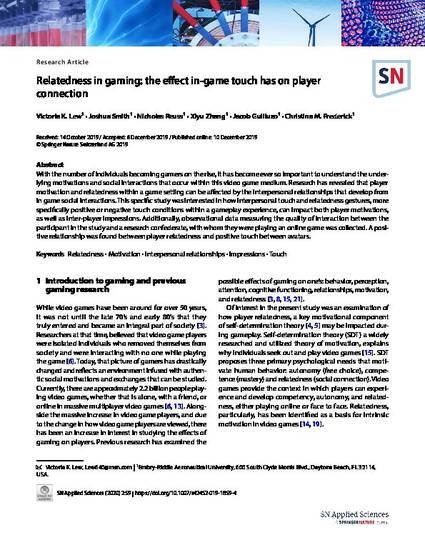
With the number of individuals becoming gamers on the rise, it has become ever so important to understand the underlying motivations and social interactions that occur within this video game medium. Research has revealed that player motivation and relatedness within a game setting can be affected by the interpersonal relationships that develop from in game social interactions. This specific study was interested in how interpersonal touch and relatedness gestures, more specifically positive or negative touch conditions within a gameplay experience, can impact both player motivations, as well as inter-player impressions. Additionally, observational data measuring the quality of interaction between the participant in the study and a research confederate, with whom they were playing an online game was collected. A positive relationship was found between player relatedness and positive touch between avatars.
Available at: http://works.bepress.com/christina_m_frederick/36/
